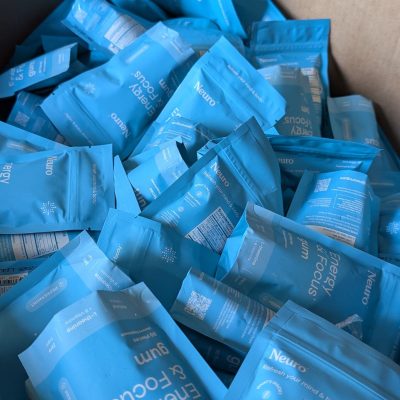Since its construction 15 years ago, the Las Vegas Monorail has transported approximately 87 million residents and visitors throughout the city. The nation’s most advanced driverless transportation system, this sleek Las Vegas landmark is also an autonomous milestone, connecting people to places even as it keeps congestion from Southern Nevada roads and carbon from the atmosphere.
“The Monorail has eliminated more than 31 million vehicle miles,” explains Perry Ursem, Vice President of Business Retention and Expansion at the Las Vegas Global Economic Alliance (LVGEA). “That’s equivalent to more than nine trips to the moon.”
That combination of sky-high innovation and efficiency is symbolic of the success of the transportation sector here, helping propel Las Vegas to the top tier of location solutions for a range of transportation-related industries, including distribution, shipping, 3PL and production of autonomous vehicles.
Other factors also move the needle, according to Ursem. “Whether the focus is market proximity or fast-moving logistical options, Las Vegas’ location advantages are hard to surpass. As companies seek out smarter, more economical solutions for Southwest market reach and global connections, Las Vegas becomes the obvious choice.”
The right place, the right timing, the right transit.
Las Vegas location in Southern Nevada puts more than 40 million consumers within a one-day delivery window; global shipping is also timely and cost-effective, thanks to one-day delivery with excellent backhaul rates to five major U.S. ports, including the port at Long Beach and the nation’s number one container port in Los Angeles. Two-day delivery is possible for every state west of the Mississippi River.
Flexibility is another strategic advantage of the region, as companies can choose from many shipping options:
- Road: I-15 adds ease and convenience to one-day California shipping by connecting Las Vegas and Los Angeles in a direct route, with U.S. Highway 95 in Nevada linking Canada to Mexico.
- Rail: While Union Pacific already provides Las Vegas with superb Class I service, efforts are underway to expand rail access through a freight rail connection between Las Vegas and Reno-Carson City, as well as a new rail spur to the Apex Industrial Park.
- Air: Harry Reid International Airport serves more than 40 million passengers a year and transports 600,000 pounds of freight air cargo. Additionally, LVGEA manages Foreign Trade Zone 89, which lowers customs and excise taxes for companies importing foreign goods or materials.
The access to both Southern California’s ports and millions of customers along the West Coast is the main reason Revo Logistics decided to open a hub in North Las Vegas in April 2022. The logistics management company, which started in Seattle but has now expanded to 7 western states, provides custom trucking and long-haul services for clients across the West.
“We expect our Southern Nevada location to be extremely important for our business,” says Mario Pabon, Head of Business Development with Revo. “We have plans to start running lines from Southern California to Las Vegas, and there are also opportunities to open warehouse sites in Las Vegas.”
Where leading brands broaden their reach.
Given such advantages, it’s not surprising that national brands have flocked to Las Vegas where they can enjoy profitable distribution operations in a right-to-work state with zero income tax, zero inventory tax and zero franchise tax. “A low-cost, business-friendly environment is especially attractive for businesses looking to escape California prices and regulations,” Ursem notes. “We’re the non-California location closest to California ports—so close and yet a world away from California’s red tape and soaring costs.”
Thriving distribution operations include those of brands such as Sephora, Amazon, Bed Bath and Beyond and the Honest Company. And while the names are big, so are the distribution territories: Kroger’s nearly 500,000 square-foot facility allows the company to service stores in Nevada, New Mexico, Arizona and Utah, while a smaller warehouse supports the company’s direct-to-consumer e-commerce platform. CJ Pony Parts provides Ford Mustang car parts to 65% of its customers within a two-day delivery; Do It Best’s 500,000 square-foot warehouse has enabled the company to save a million truck miles every year.
And Las Vegas isn’t just speeding distribution, it’s changing the very nature of delivery, shifting the paradigm as a leader in autonomous vehicle testing and production.
The inside track to a fully autonomous future.
In the race to produce autonomous vehicles, Las Vegas took the lead early: In the nation’s first state to give the go-ahead for autonomous vehicles (AV), the Southern Nevada region implemented one of the nation’s first integrated traffic management systems for advanced testing of traffic and automotive technology. Today, Las Vegas is one of the world’s preferred AV locations, whether for unveiling new technology and products at the annual CES show or for testing and production of new vehicles. Halo began its driverless car service here in 2021, while Motional, a joint enterprise of Hyundai and Aptiv, began testing its vehicle to be used in the near future by Lyft. Also, Nuro is now testing its autonomous delivery vehicles at a facility in North Las Vegas, with plans to build an assembly plant soon.
And just as Las Vegas got in on the “ground floor” of land-based AV, AV technology is also taking to the skies here with the state’s first Unmanned Aerial Systems (UAS) urban test site. Add in 320 days of sunshine as well as the nation’s most predictable weather patterns, and Las Vegas has all the elements to lift UAS potential and performance.
“We’re always keeping up with the transportation needs of today and tomorrow,” Ursem points out. “We never stand still.”




